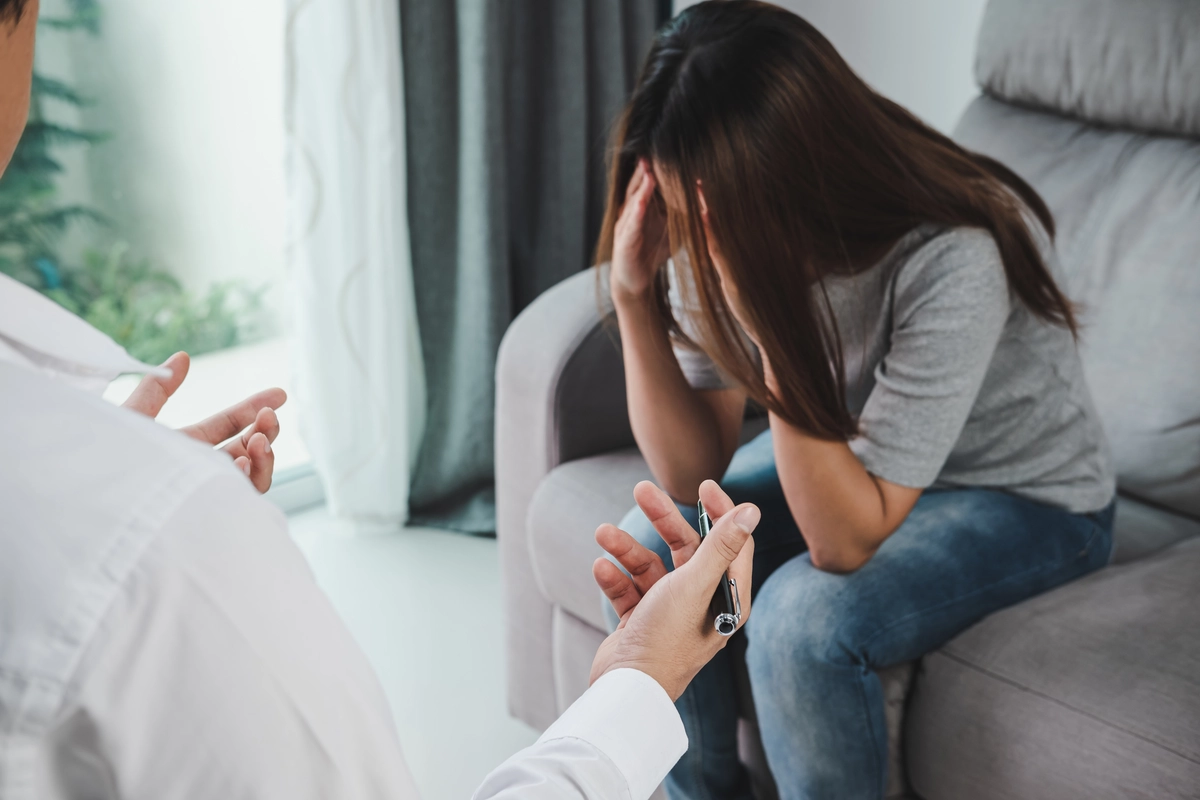24/7 Helpline:
(866) 899-221924/7 Helpline:
(866) 899-2219
Learn more about Bipolar Disorder Treatment centers in Daviess County

Other Insurance Options

Oxford

MHNNet Behavioral Health

Sutter

Cigna

Meritain

CareSource

American Behavioral

Health Net

Optima

Health Partners

Amerigroup

Group Health Incorporated
Beacon

EmblemHealth

PHCS Network

Coventry Health Care

Health Choice

Ceridian

Optum

MVP Healthcare

Owensboro Area Shelter
Owensboro Area Shelter offers inpatient treatment for victims of domestic violence dealing with anxi...

Boulware Mission – DUI Services
Boulware Mission is a traditional rehab located in Owensboro, Kentucky. Boulware Mission specializes...

River Valley Behavioral Health
River Valley Behavioral Health is an outpatient clinic that provides behavioral health services, sub...

Counseling Center
Counseling Center is a private rehab located in Owensboro, Kentucky. Counseling Center specializes i...

Spero Health – Owensboro
Spero Health – Owensboro is a private rehab located in Owensboro, Kentucky. Spero Health – Owensboro...

New Way of Life Counseling
New Way of Life Counseling is a private rehab located in Owensboro, KY. New Way of Life Counseling s...

River Valley Behavioral Health Hospital
River Valley Behavioral Health is an 80-bed private psychiatric hospital that provides behavioral he...












































































River Valley Behavioral Health – Venable PRTF
River Valley Behavioral Health - Venable PRTF is a 9-bed Psychiatric Residential Treatment Facility ...

SperoHealth – Carlton Drive
SperoHealth – Carlton Drive is a private rehab located in Owensboro, Kentucky. SperoHealth – Carlton...

Lighthouse Counseling
Lighthouse Counseling, in Owensboro, Kentucky, is an outpatient drug and alcohol rehab for adolescen...

River Valley Behavioral Health – PRTF
River Valley Behavioral Health - PRTF is a 9-bed Psychiatric Residential Treatment Facility (PRTF) t...

Solutions Counseling Services
Solutions Counseling Services is a counseling clinic located in Owensboro, Kentucky. Solutions Couns...




















































































































